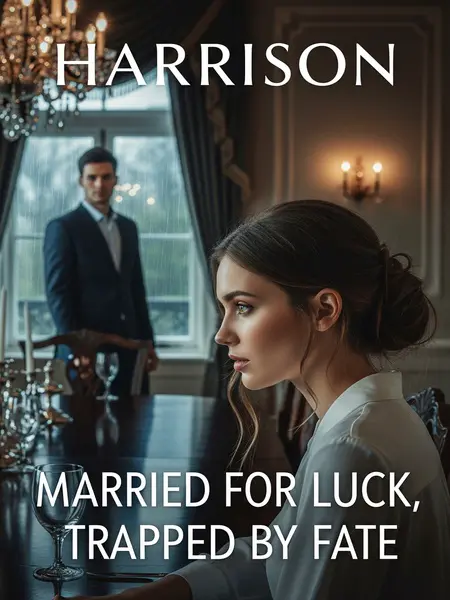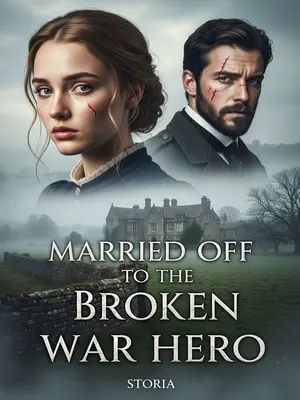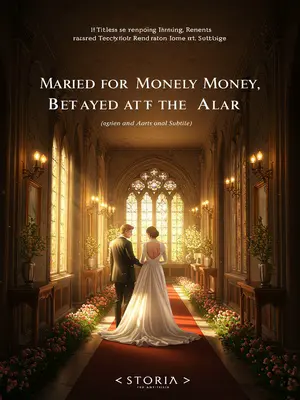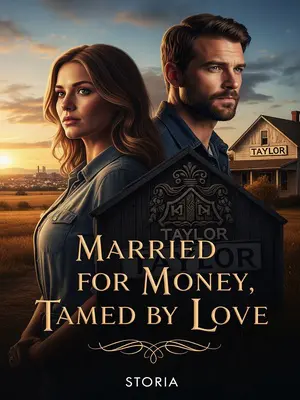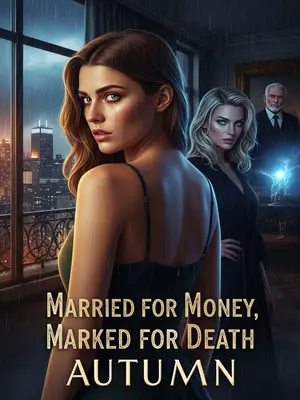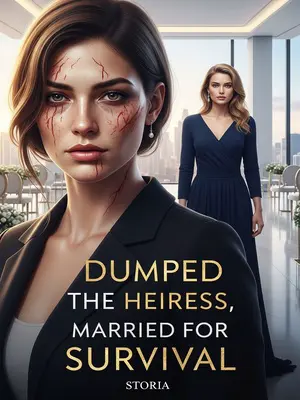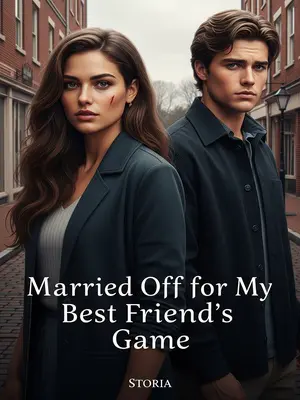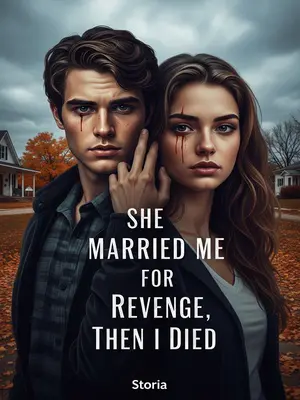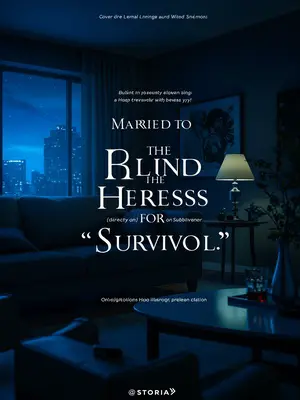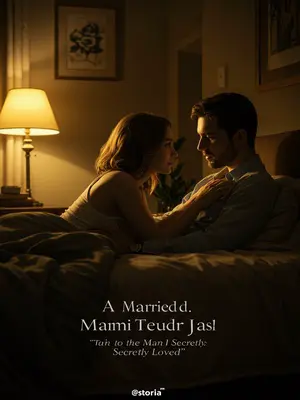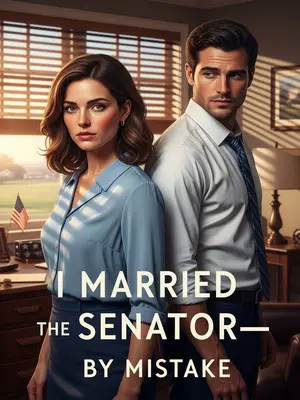Chapter 1: The Curse and the Contract
I was picked by the Whitmore family to be their daughter-in-law. Lucky me, right?
Not because our families were a perfect match, but because folks thought my luck was strong enough to break a curse. A curse, seriously?
It was one of those things people whispered about at country club brunches, or in the back pews after Sunday service—how the Whitmores, for all their money, just couldn’t catch a break. I’d overheard my own aunt say, “If anyone can turn that family’s luck, it’s Autumn. Born on Halloween, that girl’s got something special in her stars.” I never believed in that stuff. But in old New England towns? Superstition sticks around like fog.
Harrison Whitmore was a prodigy—he got into Yale at fifteen, took over the family business at twenty. But at twenty-two, he suddenly fell into a coma and just never woke up.
His name was always in the papers—first for his grades, then for his business acumen, then for the accident. I remember the day it happened, how the local news anchor’s voice dropped, like even she couldn’t believe it. The Whitmores’ lake house was swarmed with reporters, and everyone in town started speculating: drugs, stress, the old Whitmore curse. But no one really knew. Not even close.
A spiritualist said, “You need to find a woman born on Halloween, whose birth chart matches his, to chase away whatever’s hanging over him.”
It sounded like something out of a gothic novel. But the Whitmores were desperate. They’d tried everything—doctors, therapists, even a shaman from upstate. That’s when the Foster family, always eager for a leg up, volunteered me. Of course they did. My mom said it was fate; I called it a transaction.
I barely had a say. I was just the kid they’d adopted, the one who owed them everything. But what did that matter? The next thing I knew, I was engaged to a man I’d never met, lying unconscious in a hospital bed, surrounded by white lilies and the smell of antiseptic.
After he woke up, Harrison’s schedule was packed; dinners with me never lasted more than twenty minutes.
He treated dinner like a board meeting—efficient, no small talk, his phone always buzzing with texts from assistants or notifications from the stock market. Sometimes he’d finish his food before I’d even sat down. No warmth. No jokes. I’d try to make conversation, but he’d just nod, eyes fixed on his plate or the glowing screen. Sometimes I wondered if he even tasted the food.
On my birthday, after handling a malpractice complaint at the hospital, I broke down. He listened quietly as I vented, then stood up. For a moment, I thought he was going to hug me. But he just handed me the jacket from the back of his chair. “Time’s up.”
The way he said it—calm, almost bored—made me want to laugh and cry at the same time. I slipped my arms into the sleeves, feeling the warmth he’d left behind, and for a second, I almost wished he’d just say something real.
As I helped him with his coat, quietly, he asked what I wanted for my birthday. I fastened the last button for him and looked up. “I want a divorce.”
My voice was steady, but my hands trembled a little on that last button. I stared at his tie, waiting for a reaction, but his face didn’t change. Just that cool, unreadable expression he always wore, as if I’d asked for a refill of water instead of the end of our marriage. Was I really doing this?
“I have a meeting in an hour. You shouldn’t bring this up now.”
He said it like he was reciting a policy. I could almost hear the click of a mental filing cabinet. Divorce: not now. Revisit later. For a moment, I hated how unflappable he was. I wanted to shake him, to force some kind of real emotion out of him.
Harrison was always brief. He glanced at his Rolex. Twenty-one minutes. He was done.
I trailed after him, my heels clicking on the marble floor, echoing in the empty hallway. He never waited for me. But I kept up. Sometimes I wondered if he even noticed when I was there.
“Will it affect you?”
Not a wrinkle on him. His back looked as composed as ever, his suit tailored perfectly. But after three years of living together, I knew when he was angry—the veins at the back of his neck would stand out.
I watched those veins now, tracing the way they pulsed beneath his skin. It was the only tell he had. Everyone else saw the perfect heir, the golden boy. But I saw the cracks in the armor—the places where he let the world get to him.
I hesitated. Should I push?
The silence stretched between us, thick and heavy. I could feel the words piling up in my throat. I swallowed them.
We’d only fought once. Just once.
And even then, it hadn’t really been a fight. More like two people talking past each other, neither willing to say what they really meant. We never really fought. We just... missed. I remembered the way his jaw tightened, the way his hands curled into fists at his sides. But he never raised his voice. Not once.
When he woke up, he didn’t care. He wasn’t bothered by the arranged marriage. To him, marrying anyone was the same; marriage was just a checkbox.
He’d signed the papers without looking at me, his signature neat and precise. I wondered if he even remembered my name. To him, I was just another item on a long to-do list. Something to be checked off. Then move on to the next crisis.
He never told me his schedule. When the other wives at the country club showed me photos of him with another woman, fishing for drama, I just asked him about it like any ordinary wife.
They’d gathered around me, eyes bright with gossip, sliding their phones across the table. “Isn’t that your husband?” one of them asked, her voice syrupy sweet. I looked at the picture—Harrison, laughing with a woman I didn’t recognize. I shrugged, sipped my coffee. Pretended it didn’t sting.
He said, “You’ll have to get used to it.”
His tone was flat, almost dismissive. Like I was overreacting, like it was just part of the deal. I bit my tongue.
I smiled, trying to sound light. “I’m afraid of catching something.”
I said it lightly, but my hands were shaking. I watched his face, waiting for a reaction. For a split second, something flashed in his eyes—anger, maybe, or guilt. Then it was gone. Just like that.
That was the only time I saw Harrison lose his cool.
He slammed his fist on the table, startling me. “It’s all for show. I’ve never touched anyone.” His voice was sharper than I’d ever heard it, and for a moment, I almost believed him.
Afterward, his mother pulled him aside—after all, I’d supposedly broken the curse for him.
She was always there, hovering at the edges, watching us with that cool, appraising gaze. Sometimes I wondered if she saw me as a daughter or just another lucky charm.
The doctors called it a persistent vegetative state. Said his brain was shot. His mother, a devout Catholic, brought in a priest and a spiritualist.
They lit candles in the hospital room, murmured prayers in Latin and English. I stood in the corner, clutching my coat. Feeling like an intruder in my own life. The priest sprinkled holy water on Harrison’s forehead; the spiritualist waved incense and whispered about energy fields and bad luck.
The Fosters were over the moon. Sent my birth details over before I could blink.
They acted like I’d won the lottery, not like I was being traded. My adoptive mother called everyone she knew, boasting about my “destiny.” I just felt numb.
Savannah Foster—the golden child—had a bad heart. I was the Fosters’ adopted daughter, and I’d studied medicine nonstop so I could save her if anything ever happened.
I’d spent years memorizing medical textbooks, shadowing doctors, learning how to read an EKG before I could drive. All for Savannah. Everything I did was for her—her safety, her happiness. Sometimes I wondered if I even had a life of my own.
No one cared what I wanted.
It was always about Savannah. Or the family’s reputation. Or Harrison’s recovery. My feelings were just collateral damage. I learned to keep my head down and do what was expected.
Harrison and I only broke the rules once—just that one night, when we actually tried to act like husband and wife. Three years of marriage, almost no real conversation—we were strangers who only knew each other’s bodies.
It was strange, sharing a bed with someone you barely knew. We moved around each other like ghosts, careful not to touch unless we had to. Sometimes, late at night, I wondered what it would be like to really know him—to hear him laugh, to see him cry. But those moments never came. Not once.
Doesn’t matter how tough you are. Your heart still hurts.
Even now, after everything, I still wanted to believe there was something good in him. Maybe that was my curse.
I was tired. Divorce? It felt small. I figured Harrison would agree.
It felt like the logical next step, the only way out of this endless loop. I rehearsed what I’d say, how I’d say it, but when the moment came, the words tasted like ash.
